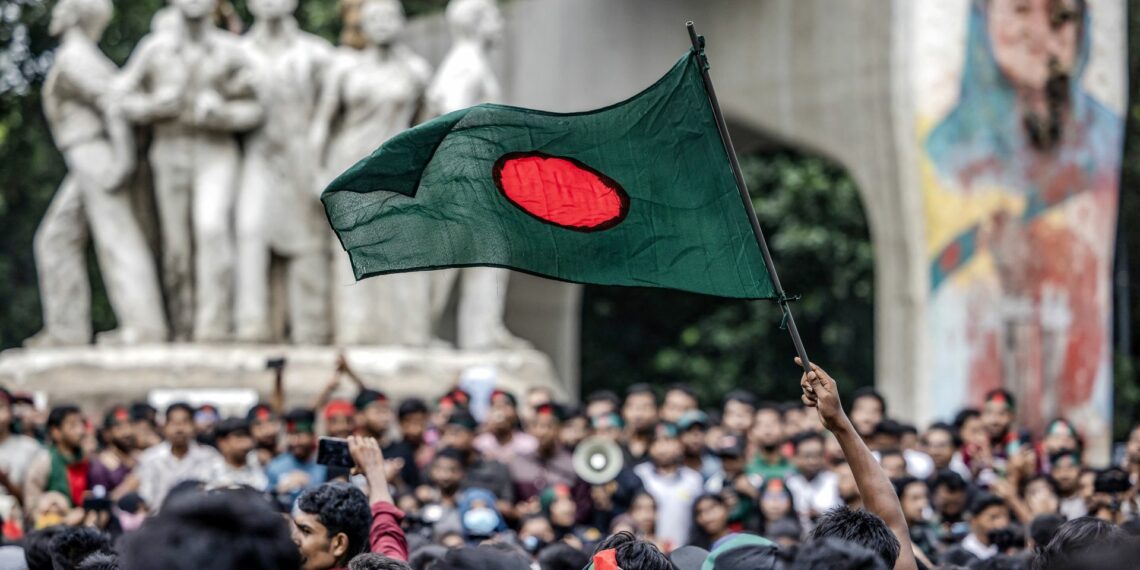After enjoying unchecked power for nearly nine months, the Dr. Muhammad Yunus-led interim administration—and its main support groups, Jamaat-e-Islami and the student-led National Citizen Party (NCP)—are now in trouble. Khaleda Zia’s Bangladesh Nationalist Party (BNP) is insisting on elections before December 2025.
BNP and ousted Prime Minister Sheikh Hasina’s Awami League have been the prime rivals for power since 1991. Over the last three and a half decades, BNP served two five-year terms, while the Awami League ruled for 20 years across four terms. Both parties have sizable loyal support bases, together cornering 70–80 percent of the votes in any election.
During the 15-year-long Awami League rule, from January 2009 to August 2024, the BNP led criticism against Hasina and organized mass demonstrations. The ruling party responded with hostility. Septuagenarian Khaleda Zia served a jail term. Her son, Tarique Rahman, was exiled by the army-backed government that preceded Hasina’s rule. He has been living in London since. However, the BNP did not vacate the political ground.
Naturally, BNP was the hot favorite to return to power after the fall of the Hasina government and was eager for an early election. But Dr. Yunus had other plans—he wanted to extend his grip on unaccountable power. Jamaat supported the idea. With an average vote share of just 5% and a peak of 10%, they knew they couldn’t win elections. Instead, they focused on exploiting the opportunities created by Dr. Yunus.
Over the past nine months, Jamaat has established significant control over the country’s banking and finance, media, and education sectors. Mobs were unleashed to force the resignations of vice-chancellors and senior professors in public universities, who were then replaced by Jamaat nominees. The same model was applied to the media sector. Over 1,000 journalists lost their jobs. Jamaat also leveraged its influence over banking to engineer hostile takeovers of media ownerships. The motive was clear: a prolonged interim government would give Jamaat the opportunity to shape public opinion in its favour.
Historically, students have played key roles in Bangladesh’s political upheavals but never sought to assume power. This time, Dr. Yunus used them to fulfill his long-standing dream of holding political office. He had been nurturing political ambitions for quite some time. Back in 2007, when an army-backed government attempted to expel Khaleda and Hasina (a plan widely referred to as the “minus-two formula”), Dr. Yunus sought American support to rise to power.
Leaked American cables from Kolkata and Dhaka suggest that he supported the army’s plan and ridiculed both top leaders. He even formed a political party to capitalize on the vacuum, but the party was short-lived due to a lack of U.S. support. The “minus-two” formula ultimately failed. Both leaders stayed in the country, faced arrests, and prevented democratic backsliding. Finally, Hasina returned to power in January 2009.
After assuming office in August 2024, Dr. Yunus saw another opportunity. He promoted students to government positions and supported the formation of the NCP, often referred to as the “king’s party.” He believed that a prolonged interim government would give the NCP time to build its base, and when the moment was right, he would call elections and declare himself as party chief. It was a calculated attempt to exploit democracy under the guise of protecting it.
But the plan is now facing serious headwinds. First, the students became extremely unpopular. Empowered by the state, they turned into extra-constitutional power centers, with widespread allegations of extortion and excesses. From demolishing the Mujibur Rahman memorial to storming TV stations and forcing journalists out, NCP leaders have done enough damage. Despite flashy social media campaigns portraying them as giants, their real-life support base is negligible. A recent public meeting of top party leaders in Dhaka drew only a few hundred people.
Second, the worsening economy and widespread misrule have fueled public demand for inclusive elections. After the regime change on August 5, Awami League leaders fled to India and elsewhere. Many grassroots workers either faced torture at the hands of the student-Jamaat-police trio or went into hiding. They are now re-emerging. In the second week of April, the Awami League organized at least two flash marches in Dhaka, both drawing significant public participation.
The return of the Awami League has alerted BNP to the risk of missing a landslide win. The longer elections are delayed, the more competitive they will become. BNP is now pressuring the government to hold quick elections. Sensing the shift, Jamaat has approached BNP with a plea to revive their old coalition. Jamaat’s top leader recently met Khaleda Zia in London, where she is undergoing treatment. But to Jamaat’s dismay, BNP is no longer interested in taking them back. Senior BNP leaders have said there is not even a one percent chance of a coalition.
ALSO READ: Can Bangladesh condemn India’s Waqf Bill while ignoring its own vested property act?
BNP’s reluctance is rooted in the troubled legacy of their 2001–2006 coalition government, marred by terrorist activities directly or indirectly promoted by the Jamaat. The events of the past nine months have convinced Khaleda Zia of Jamaat’s ulterior motives. She is unwilling to risk the party’s prospects—or its chances of gaining international support—by reuniting with them. During her visit to Delhi in March, the U.S. Director of National Intelligence, Tulsi Gabbard, reportedly emphasized that the U.S. is closely monitoring the resurgence of terrorism in Bangladesh and beyond. BNP does not want to share the blame—or ruin its opportunity to return to power.















